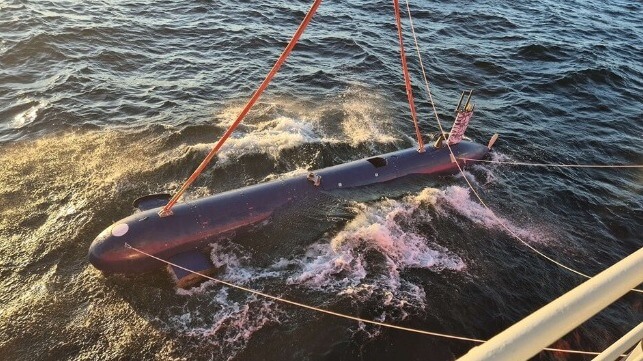German Navy Tests Out Sub-Tracking Drone Submersible in the Baltic Sea

Germany Tests Innovative Unmanned Drone Submarine
Germany is making strides in naval warfare technology by testing a groundbreaking unmanned drone submarine. This initiative marks one of the first public trials of its kind, aimed at enhancing antisubmarine warfare capabilities. The German Navy recently conducted a two-week trial of the Israeli-built IAI BlueWhale in the Baltic Sea, a region known for its challenging underwater environment and high levels of maritime traffic. This trial not only showcases Germany’s commitment to modernizing its naval forces but also highlights the growing importance of unmanned systems in contemporary warfare.
BlueWhale: A Game-Changer in Underwater Warfare
The IAI BlueWhale is a remarkable piece of technology. It operates fully on electric power and can function for two to four weeks without needing to resurface. This extended operational capability is crucial for stealth missions. The Blue Whale is designed for a variety of tasks, including antisubmarine warfare, intelligence gathering, and mine countermeasures. Its versatility makes it an invaluable asset for modern naval operations.
Island-fighting doctrine makes Marine jungle training on Okinawa trendy
One of the most significant advantages of the BlueWhale is its ability to detect and track hostile submarines while remaining undetected itself. This stealth feature is vital in the underwater domain, where traditional submarines often struggle to maintain their own stealth while searching for enemy vessels. The BlueWhale has already proven its effectiveness, with over 2,000 hours of operational time across various ocean basins. It is equipped with a towed array sonar system, allowing it to dive into subsurface layers where submarines typically hide. This capability is usually reserved for larger, manned submarines, making the BlueWhale a cost-effective alternative for antisubmarine operations.
Germany’s Commitment to Unmanned Naval Systems
The German Navy recognizes the transformative impact of unmanned systems on maritime warfare. As global naval strategies evolve, the need for advanced technologies becomes increasingly apparent. An anonymous officer leading the BlueWhale testing initiative emphasized the urgency of integrating these technologies into naval operations. “We need to become much faster in getting these technologies into use and working with them in the Navy,” the officer stated.
This commitment to innovation reflects a broader trend in military modernization. Unmanned systems like the BlueWhale offer significant advantages, including reduced operational costs and enhanced capabilities. By investing in such technologies, Germany aims to bolster its naval defense and maintain a competitive edge in a rapidly changing security environment. The successful trial of the BlueWhale is just the beginning of what could be a new era in antisubmarine warfare, paving the way for more advanced unmanned systems in the future.
